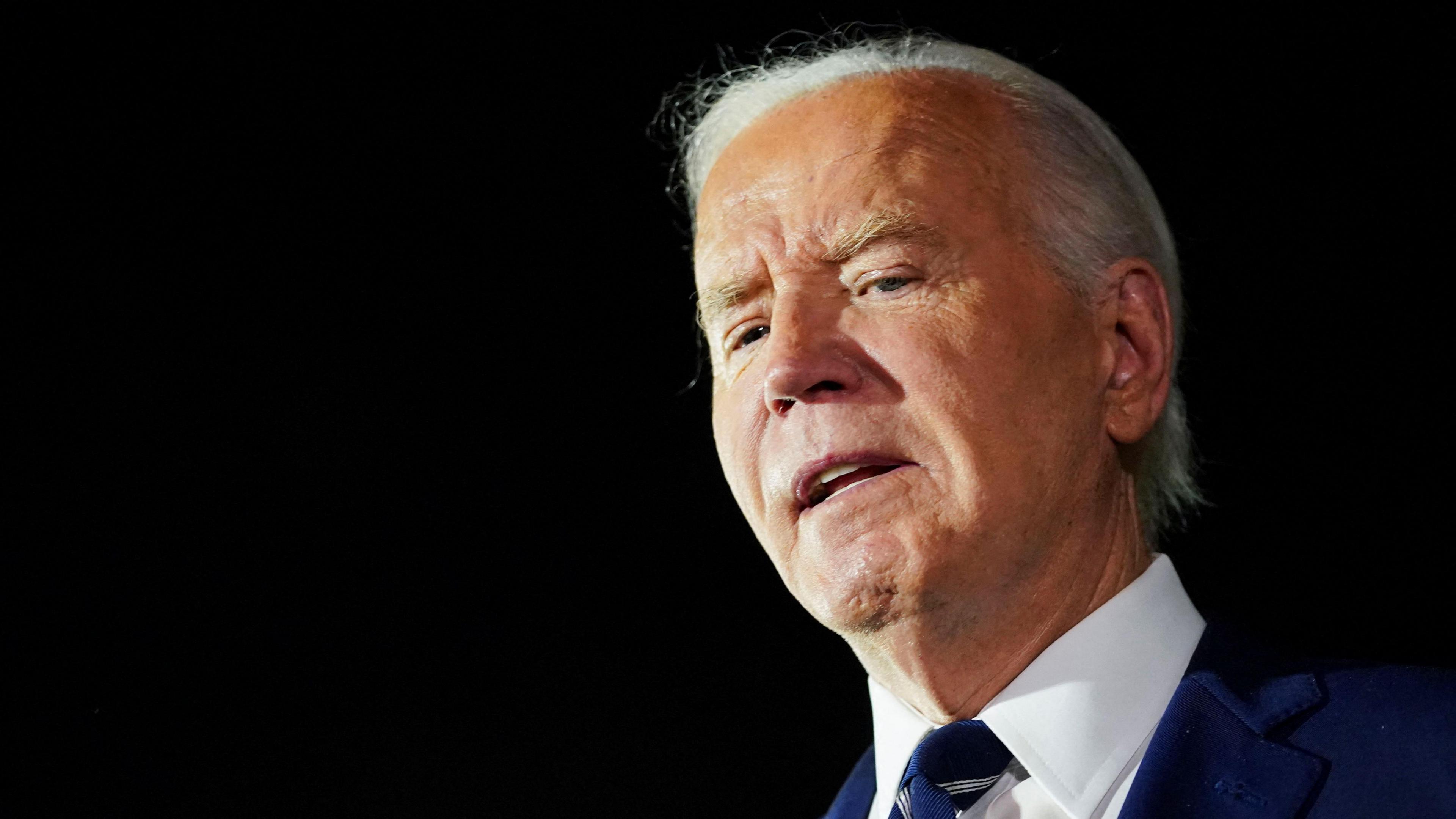Hamas leader Haniyeh buried in Qatar
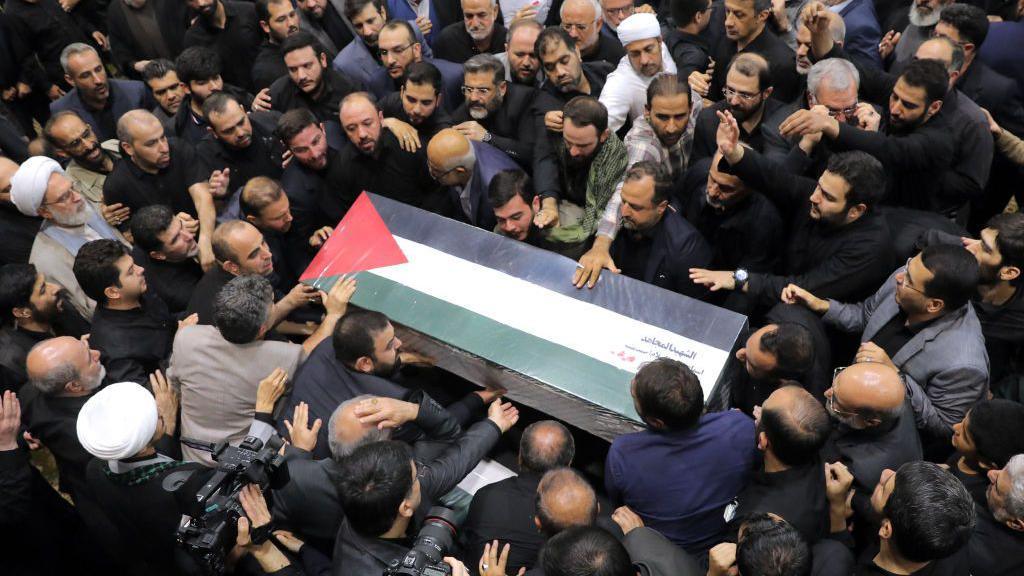
A separate funeral ceremony for the Hamas political leader took place in Tehran on Thursday
- Published
Hamas chief Ismail Haniyeh, who was assassinated in Iran on Wednesday, has been buried in a muslim ceremony in Qatar.
Funeral prayers were held at Qatar’s Imam Muhammed bin Abdul Wahhab mosque - the largest in the country - before his body was taken in a coffin draped in the Palestinian flag for burial at a cemetery in Lusail, a city north of Doha.
Several foreign officials were present at the funeral, including Turkey’s Vice-President Cevdet Yilmaz and Foreign Minister Hakan Fidan.
Haniyeh was killed during a visit to Iran’s capital. Iran and its allies have blamed Israel, though Israel has not claimed responsibility for his death.
The funeral, a high-security affair, was attended by prominent figures from both Hamas and their Palestinian rivals Fatah - as well as members of the public.
Hamas officials had earlier stood on the tarmac at Doha Airport as the plane carrying Haniyeh’s coffin landed from the Iranian capital Tehran on Thursday afternoon.
Turkey and Pakistan announced a day of mourning on Friday in honour of Haniyeh, while Hamas has called for "roaring anger marches... from every mosque" to take place after Friday prayers to protest Haniyeh's killing.
At a separate funeral ceremony for Haniyeh which took place in Tehran on Thursday, Iran's Supreme Leader, Ayatollah Ali Khamenei, led the prayers. He had earlier vowed that Israel would suffer a “harsh punishment” for the killing.
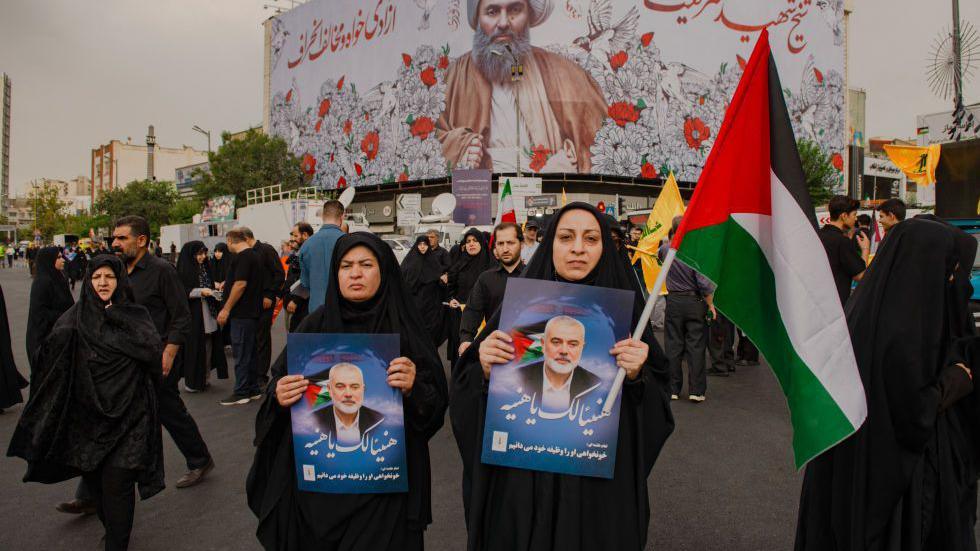
Mourners also gathered in Tehran on Thursday to pay their respects to the Hamas chief
Haniyeh had been based in Doha since about 2019. The Hamas political office moved to the Qatari capital in 2012, following the closure of its previous office in Damascus, Syria.
Haniyeh had played a key role in indirect talks with Israel over a potential ceasefire deal for the war in Gaza.
The heads of the CIA, Mossad and the intelligence services of Egypt and Qatar had attended negotiations in Doha.
Haniyeh’s burial caps a week of soaring tensions in the Middle East, which escalated with the killing of 12 children and teenagers in a strike on the Israeli-occupied Golan Heights.
Israel accused Hezbollah and vowed “severe” retaliation, though Hezbollah denied it was involved.
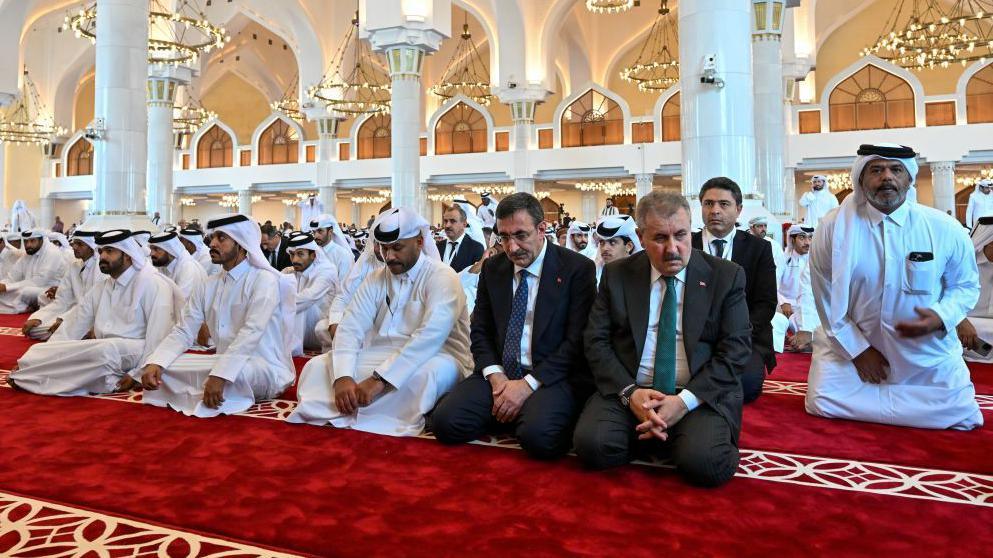
Turkish vice president Cevdet Yilmaz (centre) was among those to attend Haniyeh's funeral in Qatar
Days later, senior Hezbollah commander Fuad Shukr was killed in a targeted Israeli air strike in Beirut. Four others, including two children, were also killed.
Hours after that, Ismail Haniyeh was assassinated in Iran, Hamas's main backer. He was visiting to attend the inauguration of Iran's new president, Masoud Pezeshkian.
Israel has not claimed responsibility for the assassination, but Israeli Prime Minister Benjamin Netanyahu said afterward that Israel delivered “crushing blows” to Iran’s proxy groups in recent days.
A senior Hamas official told the BBC the killing took place in the same building where Haniyeh had stayed during previous visits to Iran. Three Hamas leaders and a number of guards were with him in the same building, they said.
The killing of Haniyeh left the leadership of Hamas in “a state of shock”, top Hamas officials told the BBC.
The circumstances around his death remain unclear.
Khalil al-Hayya, a senior Hamas official, told a news conference that a missile hit Haniyeh "directly", citing witnesses who were with him.
But a report in the New York Times, external, which cites seven officials, says Haniyeh was killed by a bomb that had been smuggled two months ago into the building where he was staying.
The BBC has not been able to verify either of these claims.
- Published1 August 2024
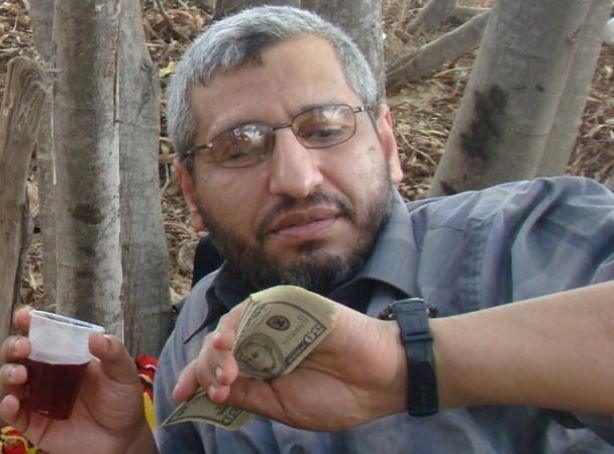
- Published1 August 2024
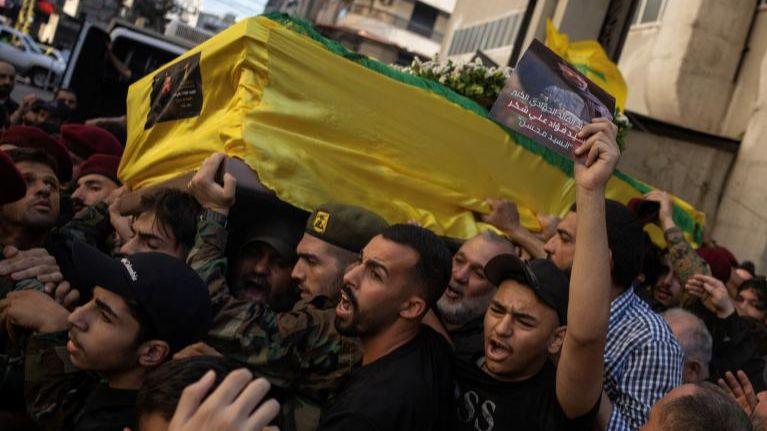
- Published2 August 2024
